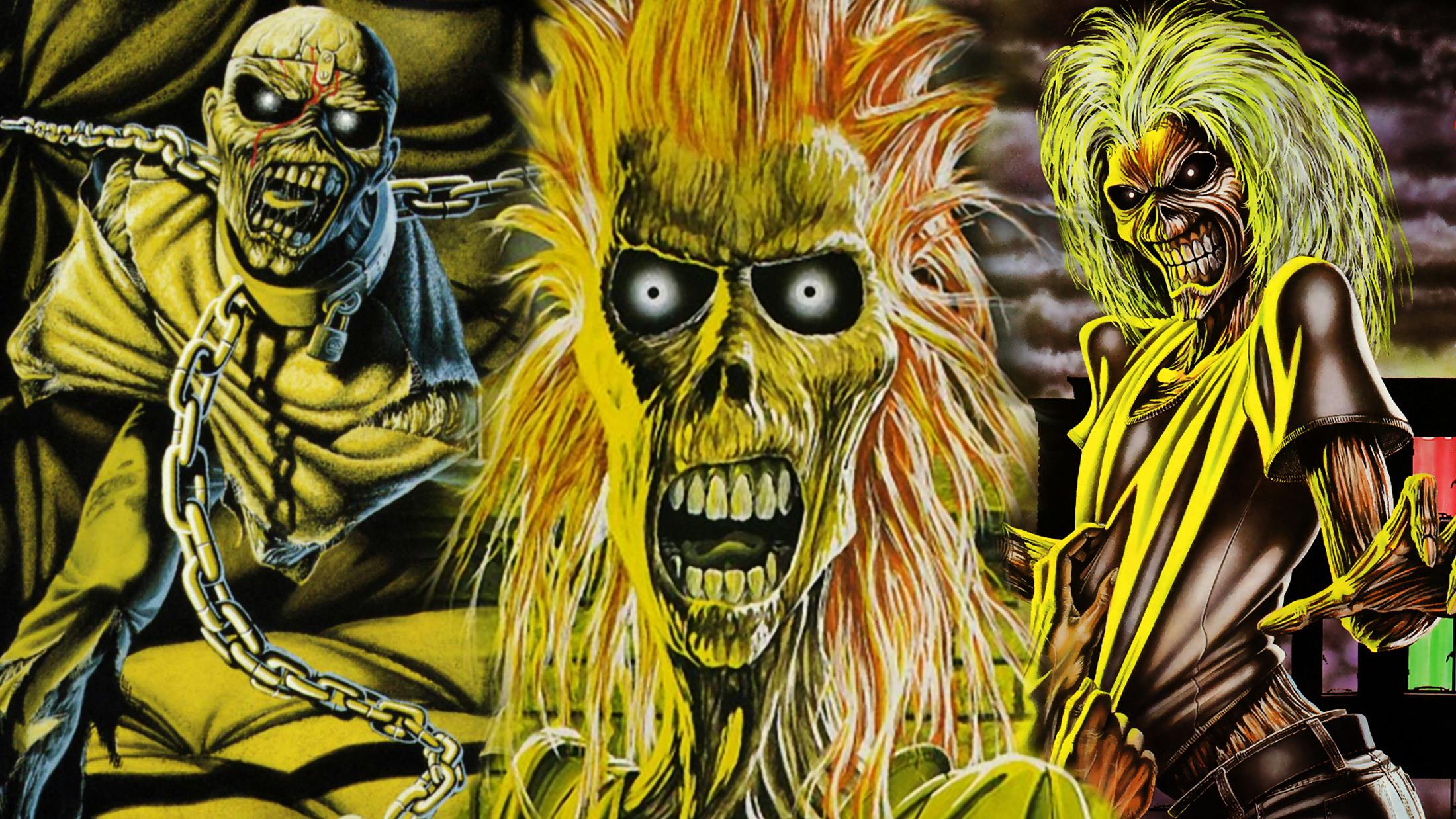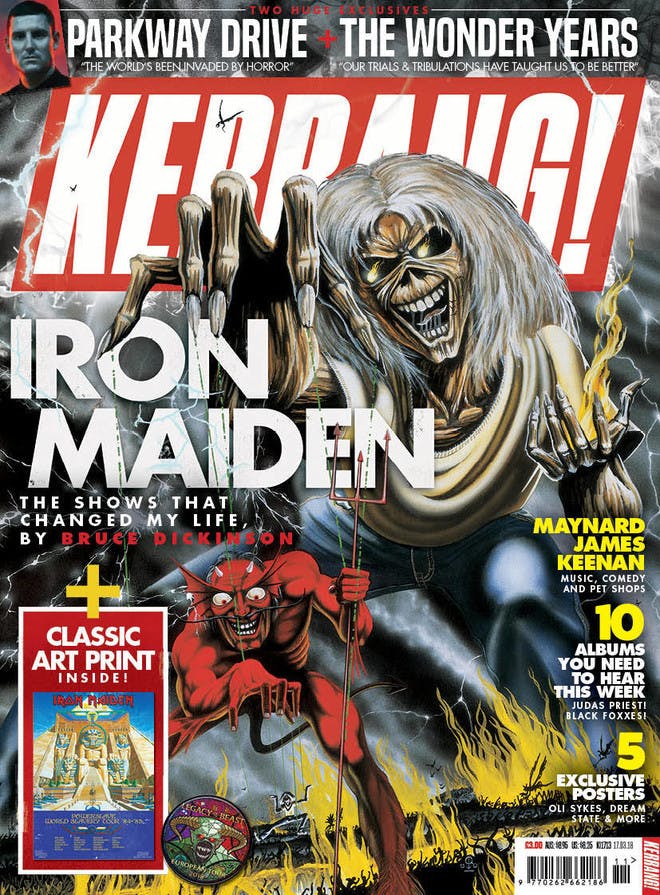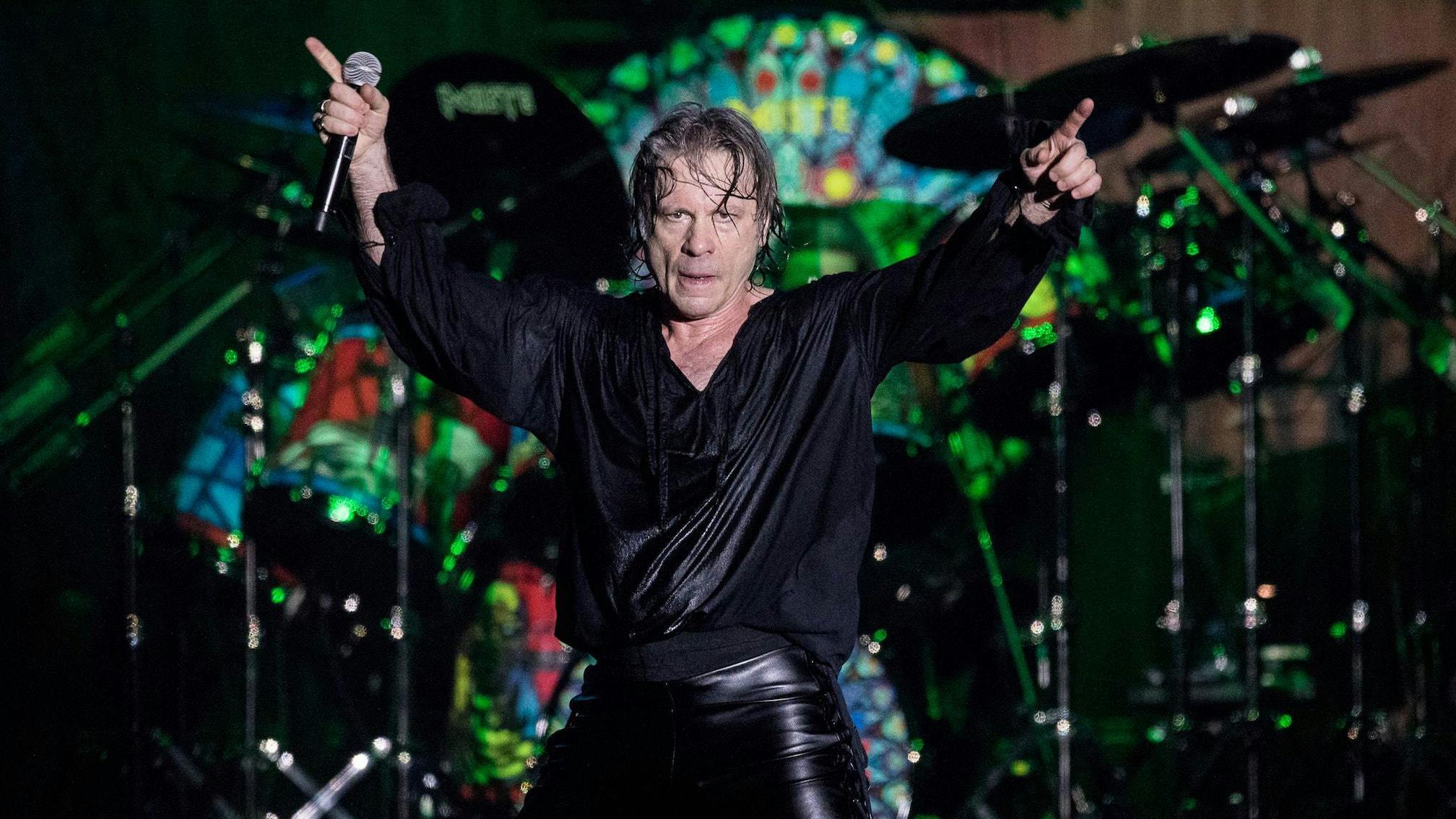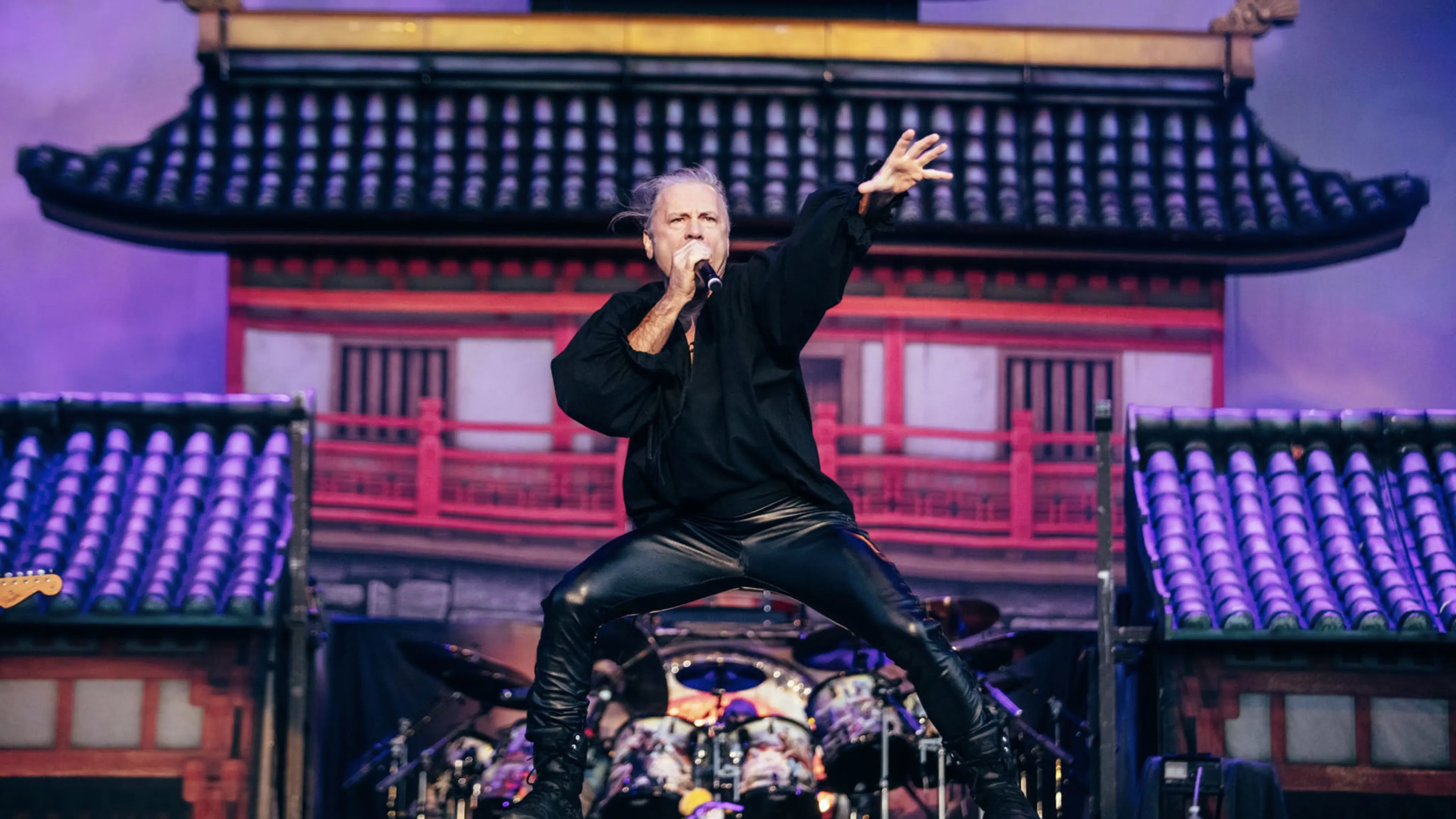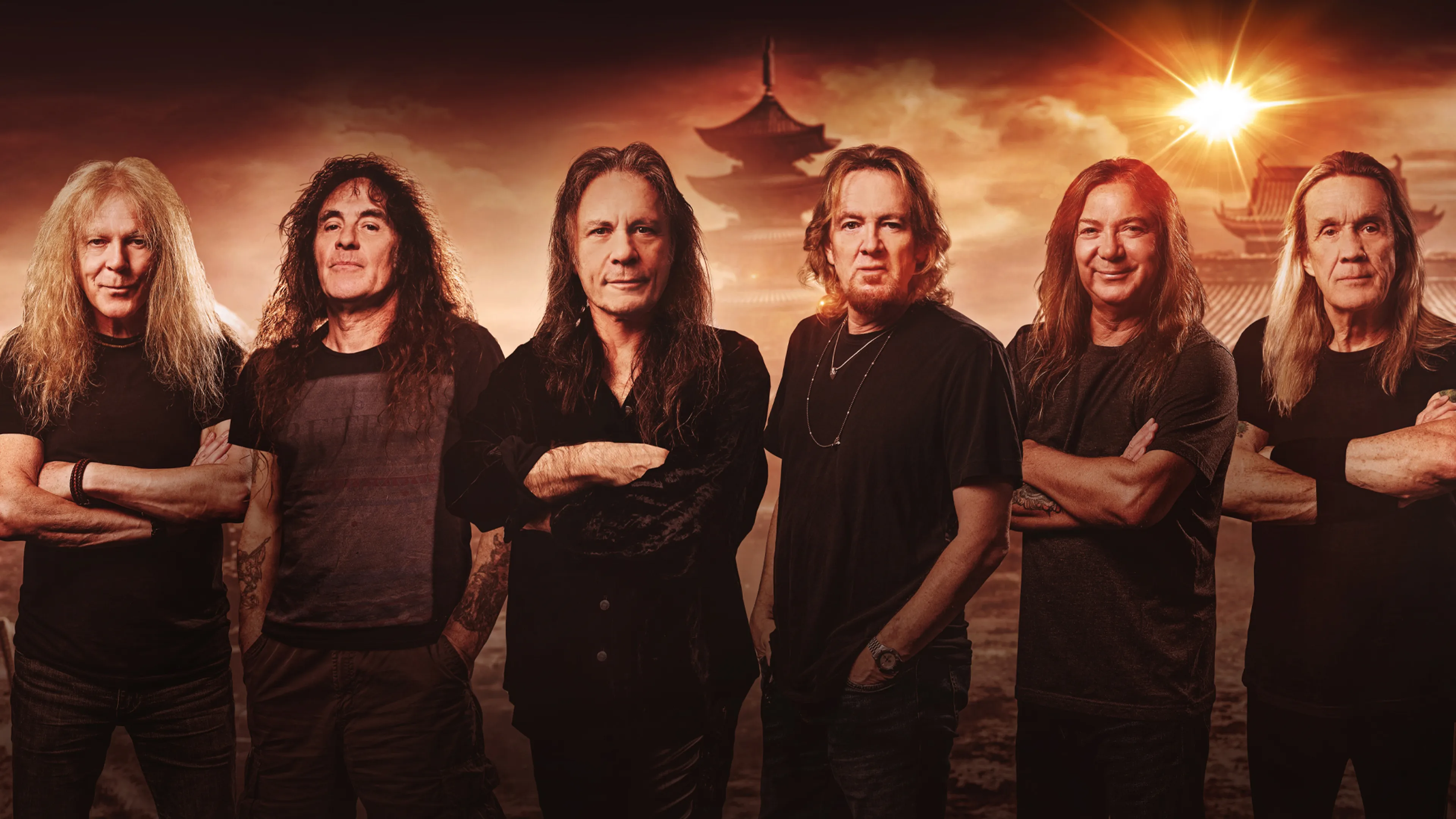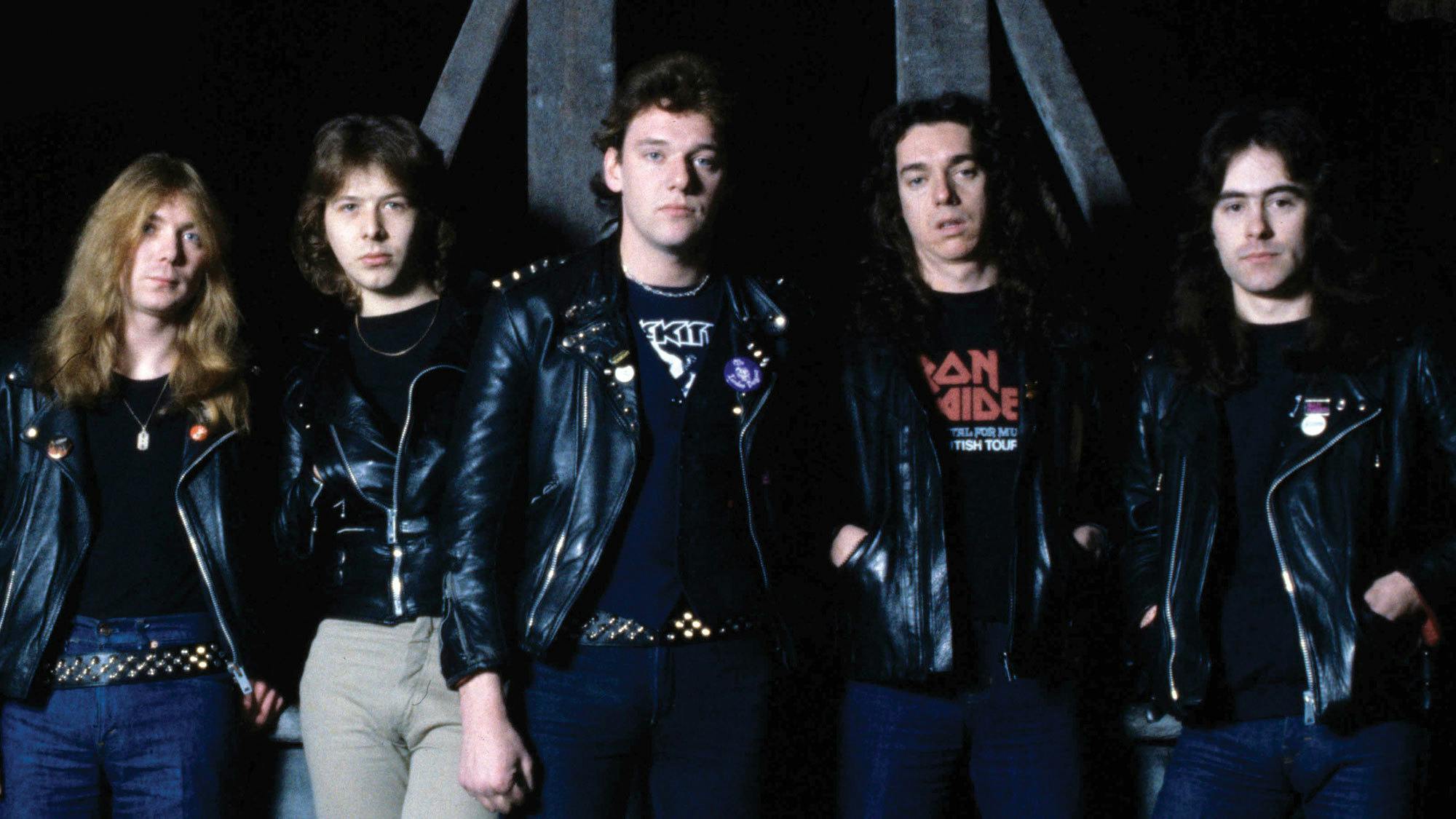Just in case you needed reminding, Iron Maiden are one of the most important and iconic heavy metal bands of all time. Here's Paul Travers, one of Kerrang!'s longest serving freelance contributors, to explain why their legacy goes from strength to strength.
You can count the number of genuine contestants for the mantle of ‘Greatest Metal Band of All Time’ on one of The Simpsons’ hands. The question of ‘best’ is another, more purely subjective one, with a potentially very long shortlist. But if you add factors like sales, influence, originality and longevity into the mix you end up with Black Sabbath, Judas Priest, Metallica and, of course, Iron Maiden.
This isn’t a claim for Iron Maiden being the greatest metal band, or even the best. That would be like choosing a favourite child and I rarely do that - whenever they need my favour I just drop them all in a pit and the last one standing gets my attention. If you don’t acknowledge that Iron Maiden are one of the greatest bands in the world of any genre, however (like, say, Danny Boyle, who omitted not only Maiden but the UK’s entire metal heritage from that London 2012 Olympics malarkey) then we probably can’t be friends.
Personally, I can’t claim to have been there right from the start. In Maiden lyrical terms, let’s say I’m the old man on the hill from Flight Of Icarus rather than the truly Ancient Mariner. In 1985 however, a mini-me who was still going through that awkward mullety stage of growing your hair out was quietly obsessing over the immense double live album Live After Death. The mix of intricacy, energy and sheer epic scale had me hooked. From the Churchill speech intro to singer Bruce Dickinson’s own iconic utterances (“Scream for me Long Beach!”), it was the closest thing to being at those now legendary shows.
